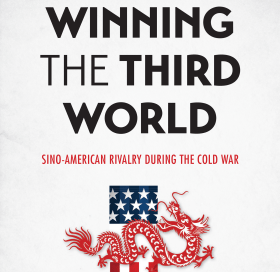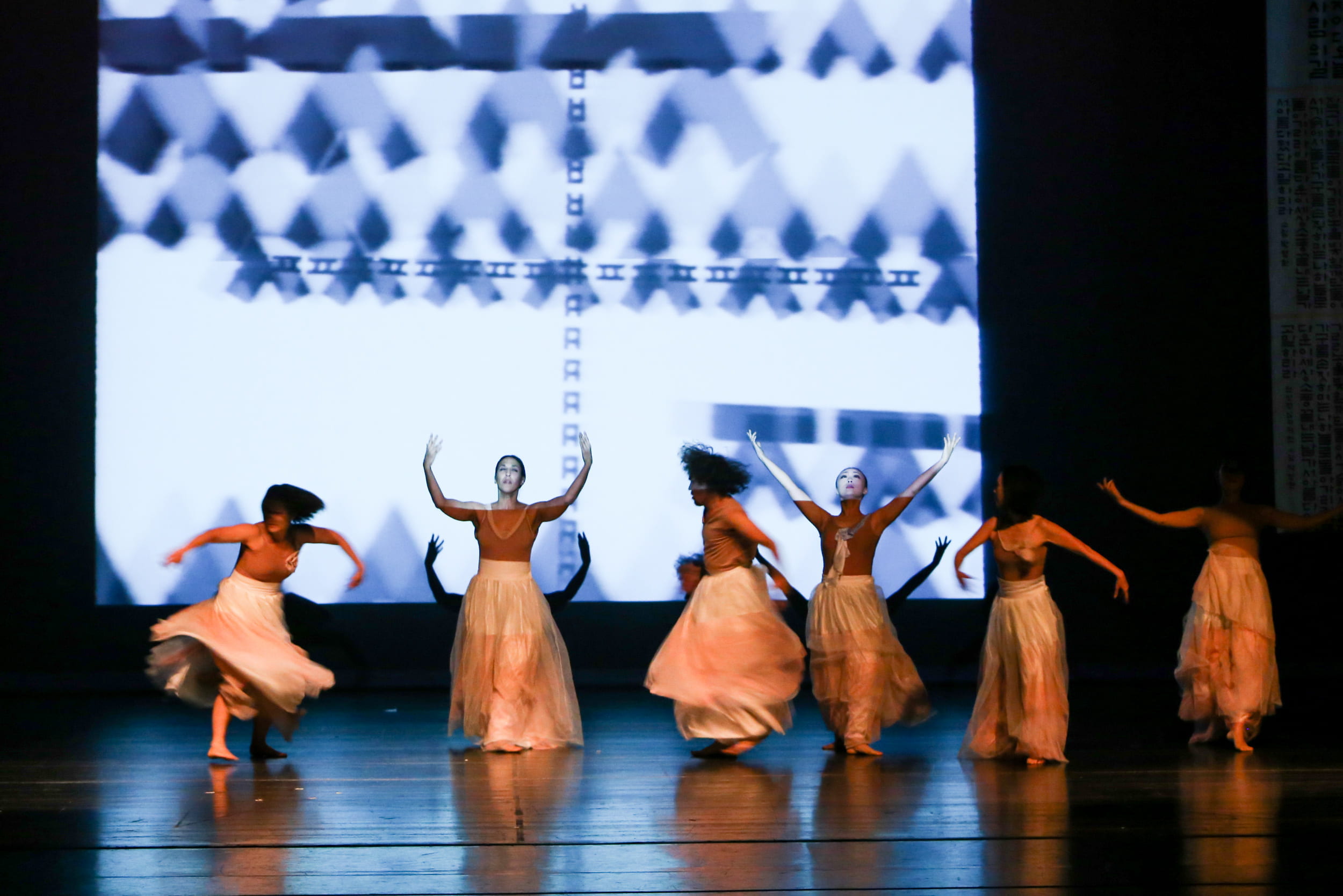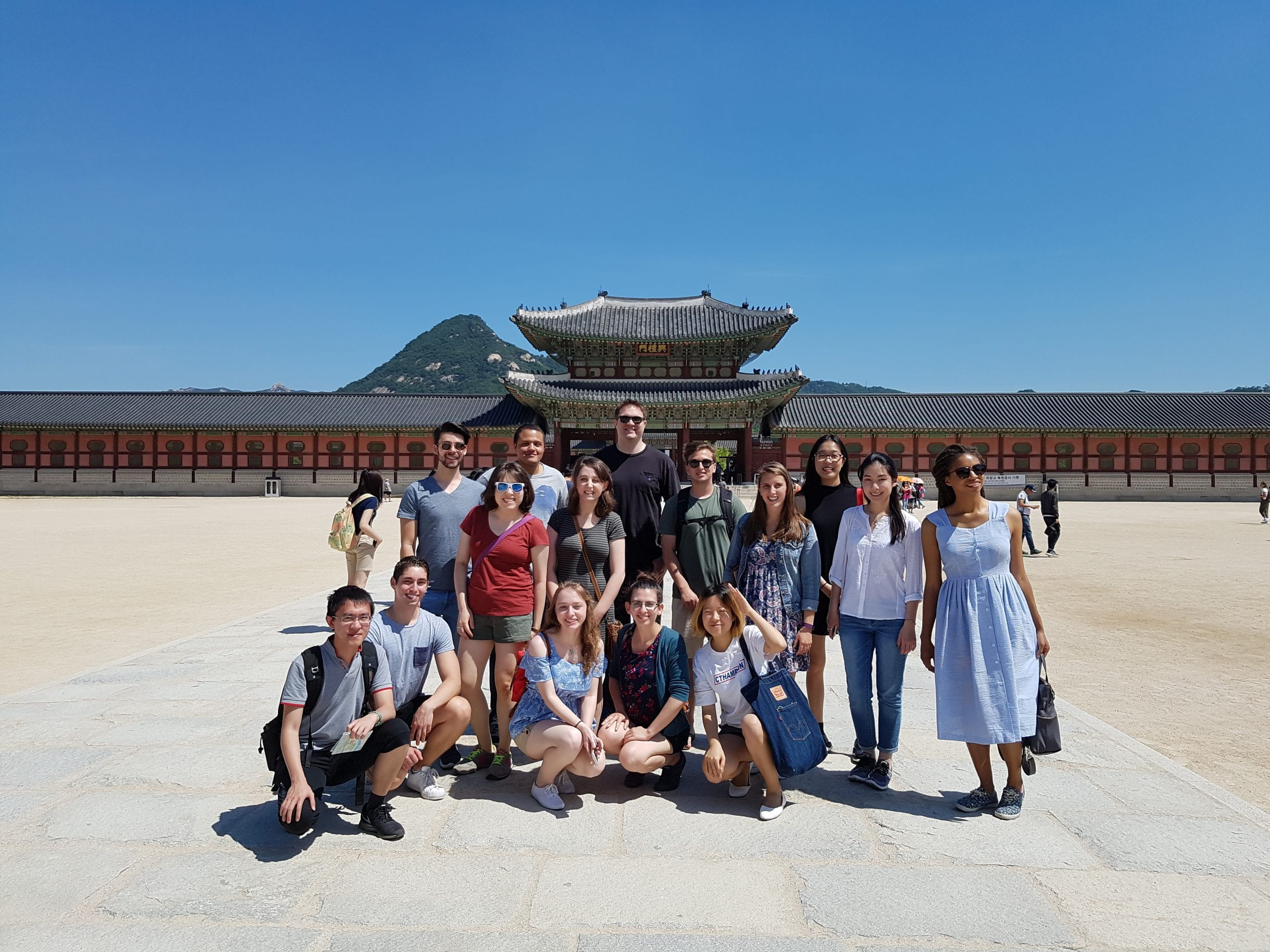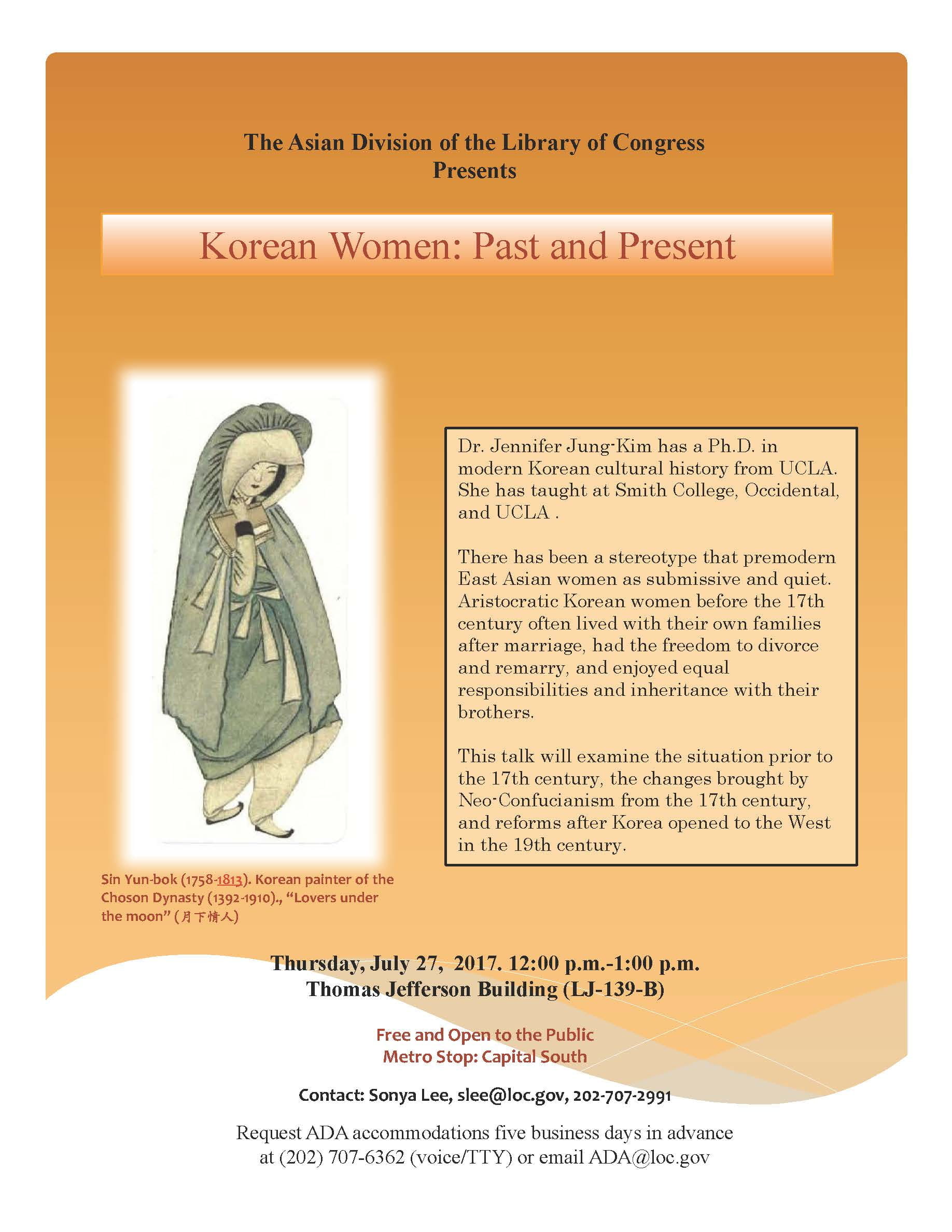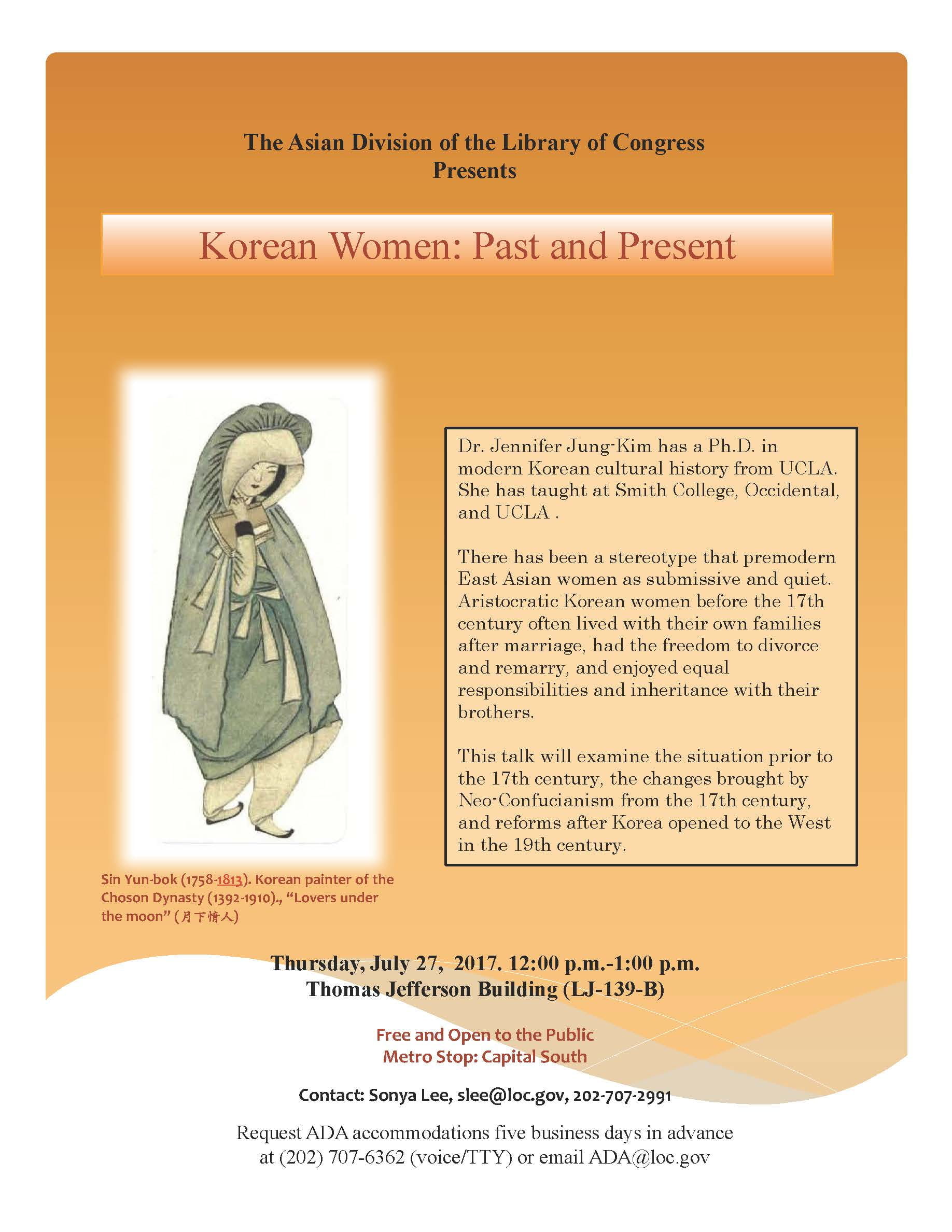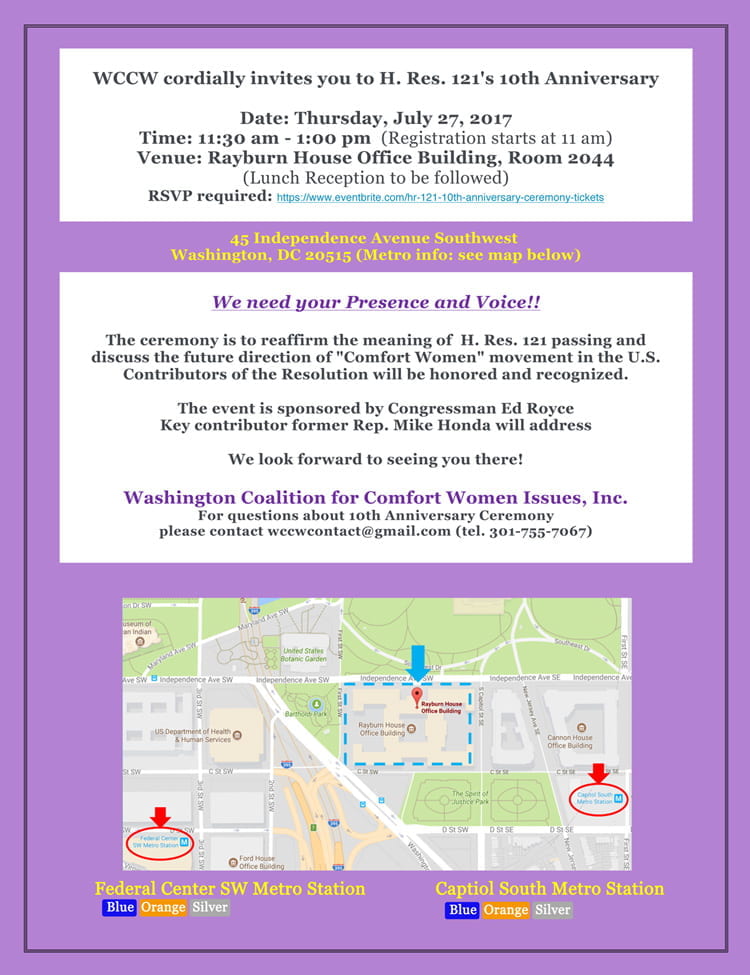The 2017 GWIKS Summer Travel Grant Presentations began with Professor Jisoo Kim explaining the application process and the function of the grant to students wishing to receive funding for summer 2018. This past summer, four GW graduate students were awarded the travel grant, which supported their travels to Korea to conduct research for their thesis, capstone, or dissertation.
 Kya Palomaki (M.A. Candidate, Security Policy) was the first panelist to share about the research she conducted with the help of the GWIKS grant. Kya spent her summer in Daejeon, where she participated in a 7-week fellowship hosted by the Korea Advanced Institute of Science and Technology (KAIST) and the Nuclear Nonproliferation Education and Research Center (NEREC). Kya took courses on topics ranging from the trafficking of weapons to nuclear terrorism, and also traveled throughout Korea, China, and Japan to meet with leading experts. Kya was assigned to work on a project focusing on the Polish nuclear power program, and while this deviated from her desire to study ROK-US cooperation on nuclear nonproliferation, she nevertheless took away applicable lessons for the East Asian context. She examined the geopolitical ramifications of Poland’s nuclear program, while her Korean engineer partner analyzed the technical capabilities, and they were able to present their findings at a large conference towards the end of their program.
Kya Palomaki (M.A. Candidate, Security Policy) was the first panelist to share about the research she conducted with the help of the GWIKS grant. Kya spent her summer in Daejeon, where she participated in a 7-week fellowship hosted by the Korea Advanced Institute of Science and Technology (KAIST) and the Nuclear Nonproliferation Education and Research Center (NEREC). Kya took courses on topics ranging from the trafficking of weapons to nuclear terrorism, and also traveled throughout Korea, China, and Japan to meet with leading experts. Kya was assigned to work on a project focusing on the Polish nuclear power program, and while this deviated from her desire to study ROK-US cooperation on nuclear nonproliferation, she nevertheless took away applicable lessons for the East Asian context. She examined the geopolitical ramifications of Poland’s nuclear program, while her Korean engineer partner analyzed the technical capabilities, and they were able to present their findings at a large conference towards the end of their program.
 Soo-Jin Kweon (M.A. Candidate, English Literature) shared about her research on contemporary Korean queer historical dramas, which allowed her to examine how homo-eroticism and queer sexuality were understood throughout Korean history, and how contemporary Korean films adopt the Western conceptions of sexuality and identity. Soo-Jin attended the 17th Korea Queer Film Festival and interviewed Dr. Kim Kyung Tae, who wrote his PhD dissertation on homosexual relationships in contemporary Korean films. Additionally, she facilitated her research by examining sources at the Seoul National University Library and the Korean Film Archive. Soo-Jin focused on the film, “A Frozen Flower,” comparing historical records and the director’s interpretation and portrayal of King Gongmin of Goryeo Dynasty.
Soo-Jin Kweon (M.A. Candidate, English Literature) shared about her research on contemporary Korean queer historical dramas, which allowed her to examine how homo-eroticism and queer sexuality were understood throughout Korean history, and how contemporary Korean films adopt the Western conceptions of sexuality and identity. Soo-Jin attended the 17th Korea Queer Film Festival and interviewed Dr. Kim Kyung Tae, who wrote his PhD dissertation on homosexual relationships in contemporary Korean films. Additionally, she facilitated her research by examining sources at the Seoul National University Library and the Korean Film Archive. Soo-Jin focused on the film, “A Frozen Flower,” comparing historical records and the director’s interpretation and portrayal of King Gongmin of Goryeo Dynasty.
 Huong Dang (PhD Candidate, Economics) detailed the research she conducted on South Korea’s industrial policy and economic development. She resided on and utilized resources available at Sogang University in Seoul, as well as audited courses on Korea’s economic development at the Korea Development Institute. Furthermore, Huong visited numerous think tanks and was able to engage with leading experts, allowing her to explore different schools of thought and to examine the application of Korea’s particular path and strategy for currently developing countries and, in particular, Vietnam.
Huong Dang (PhD Candidate, Economics) detailed the research she conducted on South Korea’s industrial policy and economic development. She resided on and utilized resources available at Sogang University in Seoul, as well as audited courses on Korea’s economic development at the Korea Development Institute. Furthermore, Huong visited numerous think tanks and was able to engage with leading experts, allowing her to explore different schools of thought and to examine the application of Korea’s particular path and strategy for currently developing countries and, in particular, Vietnam.
 Benjamin Young (PhD Candidate, Korean History) traveled to Korea to investigate North Korea’s ties to the Third World during the Cold War, which enabled North Korea to build prestige and garner support for Kim Il Sung’s role as a global revolutionary leader. Benjamin analyzed two case studies, with the first being North Korea’s ties to Iran, and the second being North Korea’s ties to the small Caribbean state of Grenada. He elaborated upon specific examples that demonstrated the overarching theme of his dissertation, such as the enrollment of both South and North Korean students (and the resulting tension) at Tehran Foreign School, or the efforts of North Korean diplomats to enhance the Grenadian socialist movement. He was able to examine these rarely studied cases, thanks to access to sources at South Korea’s National Assembly Library, ROK Foreign Ministry Archive, the University of North Korean Studies Library, and the National Institute of Korean History Archive.
Benjamin Young (PhD Candidate, Korean History) traveled to Korea to investigate North Korea’s ties to the Third World during the Cold War, which enabled North Korea to build prestige and garner support for Kim Il Sung’s role as a global revolutionary leader. Benjamin analyzed two case studies, with the first being North Korea’s ties to Iran, and the second being North Korea’s ties to the small Caribbean state of Grenada. He elaborated upon specific examples that demonstrated the overarching theme of his dissertation, such as the enrollment of both South and North Korean students (and the resulting tension) at Tehran Foreign School, or the efforts of North Korean diplomats to enhance the Grenadian socialist movement. He was able to examine these rarely studied cases, thanks to access to sources at South Korea’s National Assembly Library, ROK Foreign Ministry Archive, the University of North Korean Studies Library, and the National Institute of Korean History Archive.
This engaging series of presentations reflected the wide range of research topics, as related to Korea, that can be covered by the GWIKS Summer Travel Grant. All GW graduate students are eligible to apply for the GWIKS Summer Travel Grant, and details regarding the application for summer 2018 will be available on our website early next semester.



